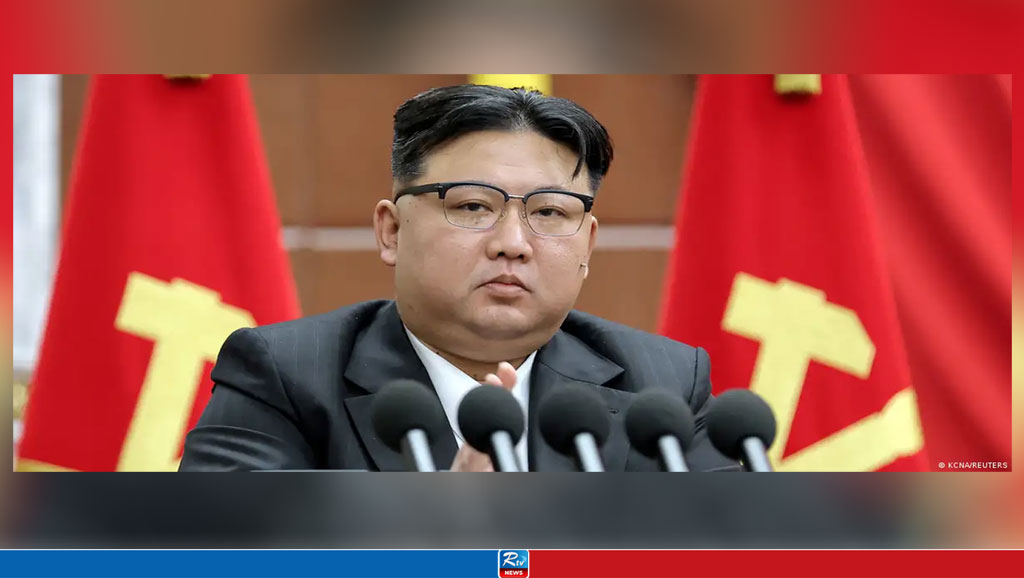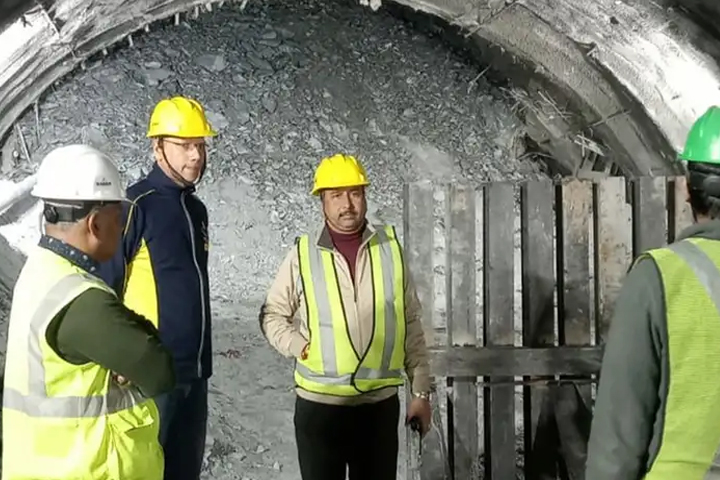If Trump wins, he plans to free Wall Street from
A second Trump White House would seek to sharply reduce the power of U.S. financial regulators, according to a review of public documents and interviews with people allied with the former president.
In the wake of the worst economic crisis since the Great Depression, Congress dramatically expanded the U.S. government's oversight of the financial industry to prevent a repeat of the 2008 global banking meltdown.
Donald Trump would likely renew his efforts to scale back those reforms, if elected, as well as pare protections for small-scale investors and borrowers, and allow companies to raise money with less scrutiny, according to the interviews and proposals from groups positioned to influence a new conservative administration. Reuters spoke with, among others, about a dozen people who have provided advice or been consulted by Trump or his allies.
The Republican Party’s presumptive nominee has not announced a formal policy staff or released detailed positions on how he would regulate Wall Street, aside from short videos and snippets in campaign appearances.
But, the sources told Reuters, a constellation of experts and Trump allies are pitching regulatory rewrites, identifying potential staff and floating ideas on TV, in op-eds and directly to Trump at his Mar-a-Lago Club in Palm Beach, Florida.
Some of the ideas in Trump’s current policy orbit have long circulated in conservative economic conversation. They include curtailing the Dodd-Frank Act, a set of post-2008 financial crisis rules intended to reduce systemic risk. Another idea is to make it easier for private companies to raise capital – in turn opening access to less transparent and more difficult-to-trade private funds and securities.
More recent policy ideas include attacking environmental, social and governance (ESG) investments and disclosures, which help screen businesses based on socially conscious factors, or potential dramatic cuts to staff at regulators through a mechanism known as Schedule F, which would reclassify up to 50,000 civil servants across the government as easily-replaceable political appointees.
Karoline Leavitt, national press secretary for the Trump campaign, said Trump had success in peeling back regulations during his administration.
"President Trump's pro-growth, deregulatory agenda ignited the greatest economy in history,” Leavitt said in an email to Reuters.
The Trump administration, with mixed success, opens new tab, worked to reverse a range of Obama-era rules, such as those that eased regulations for Wall Street banks or “fiduciary” rules for brokers.
Excluding the immediate effects of the coronavirus pandemic, official data show unemployment at its lowest since the 1960s under both Trump and Biden. Though pandemic and other distortions can make comparisons difficult, in inflation-adjusted terms the U.S. economy grew more slowly in Trump’s first three years in office (8.1%) than under Biden (10.6%), according to Commerce Department data.
Michael Faulkender, a former Trump Treasury official, has called publicly for scrapping bank stress testing, opens new tab under the 2010 Dodd-Frank Act in favor of stronger capital requirements, saying that requiring banks to pass the same set of evaluations leaves the system open to collapse if they all run into the same problems at once.
He is now chief economist at the America First Policy Institute (AFPI), which was founded by former Trump officials. Asked about his policy positions, Faulkender pointed to his previous writing, opens new tab about ESG investing.
“As the academic literature has documented, ESG is too much in the eye of the beholder,” he told Reuters. “Therefore, it can and has been used to deviate from the fiduciary duty that money managers have to their clients, and it has distracted financial supervisors from the safety and soundness criteria that should be used in ensuring the ongoing strength of the U.S. financial system.”
TARGETING CLIMATE CHANGE RULES
Robert Bowes, a former Trump appointee who has worked with the conservative Heritage Foundation, has called for the abolition, of the Consumer Financial Protection Bureau – created by the Dodd-Frank Act to police the lending industry at the federal level – and referred to the Securities and Exchange Commission as an “unaccountable meddling shakedown agency” that “uses its regulation to target political enemies, to ram through woke and radical green agenda.”
In an email, Bowes told Reuters he was “very concerned about the disastrous bank regulation and economic policies by the Biden administration.”
Asked about that characterization and others about burdensome regulations, a Biden White House spokesperson said congressional Republicans have pushed to continue Trump-era policies by “gutting life-saving regulations and legalizing predatory business practices,” thereby increasing risks to the financial system and the economy.
It’s unclear what ideas Trump will take up, and what can become settled policy. But taken together, the ideas being promoted in conservative circles would overturn key aspects of current financial regulation.
The changes would reverse reforms ranging from investor protections to risk management by the biggest banks, Brian D. Feinstein, an expert on financial regulation at the University of Pennsylvania’s Wharton School, said of the policy proposals being floated for a second Trump administration.
“It would upend the U.S.'s entire system of financial regulation,” he said.
Campaign spokeswoman Leavitt characterized Biden’s administration as engaging in a "massive push to increase burdensome regulations, especially on our energy and auto industries."
The Biden administration has pushed regulations to spur the use of electric vehicles and renewable energy sources, in addition to seeking fair lending requirements, increased investor disclosures and bank capital hikes.
Trump has repeatedly said he wants much less regulation than now exists. A person who regularly speaks with him on economic matters said Trump would be “sure” to “go after all of this climate change stuff,” likely a nod to new corporate climate risk disclosure rules and ESG investments.
Feinstein, the Wharton professor, said that some of the proposed policies from Trump’s allies would need to go through Congress, such as limiting the Dodd-Frank Act, making their fortunes uncertain. That will depend on the outcome of November’s elections in the U.S. Senate and House of Representatives. Currently, Democrats control the Senate and Republicans have a narrow House majority.
But agencies like the Securities and Exchange Commission, whose five-person bipartisan commission is appointed by the White House (usually one each year) and approved by the Senate, would have power to push through other proposals, such as those related to environmental reporting, Feinstein said.
And bureaucratic changes such as expanding the definition of political appointees through Schedule F could have a major effect on financial regulators by removing job protections for many career professionals, compelling them to pursue the president’s preferences rather than their own independent judgment, he added. The Biden administration has maneuvered to slow such a move by Trump should he return to office.
Even if Trump loses the election, the judicial appointments from his 2017-2021 presidency could change the legal landscape for the Consumer Financial Protection Bureau and the Securities and Exchange Commission, with the Supreme Court considering challenges to the power of those agencies to issue regulations.
THINK TANK TRANSITION
The Heritage Foundation, the influential Washington-based conservative think tank, has positioned itself as central to getting the agenda through regardless.
Heritage’s preparations, dubbed “Project 2025, opens new tab,” include a more-than-900-page book of policy ideas and an expansive database of pre-screened personnel. The group has compiled policy recommendations since the Reagan era, but the latest edition includes more detail on financial regulation than in 2016.
Among Heritage’s policy authors is Stephen Moore, a conservative economist and longtime advisor to Trump who recently pitched him at Mar-a-Lago on candidates to lead the Federal Reserve. Moore proposes a transformation of the U.S. Department of the Treasury that would slash the Internal Revenue Service’s budget and terminate employees who have participated in diversity initiatives, among other things.
Moore told Reuters he’d like to see “less of the regulators sticking their fingers in all these financial transactions, especially in areas like banking regulation,” singling out bank capital requirements in particular.
A spokesperson at Heritage declined to comment.
The America First Policy Institute, the nascent think tank led by Trump White House strategist Brooke Rollins, is also angling for influence. The group is home to more than 50 former Trump administration officials and staff, including Larry Kudlow, the FOX Business Network host and former White House economic adviser who remains close to Trump; Faulkender, who led the Covid-era Paycheck Protection Program at Treasury; and Robert Lighthizer, the former U.S. Trade Representative.
The group has also written a high-level policy agenda, opens new tab and is “crafting action-oriented plans for each federal department and agency” as part of the “America First Transition Project, opens new tab.”
A spokesman for AFPI said in an email that its Transition Project "is focused on unleashing American prosperity by implementing the America First Agenda."
Lighthizer did not respond to a request for comment.
POTENTIAL PERSONNEL
Steven Cheung, the Trump campaign’s communications director, said in an emailed statement that there has been “no discussion” of potential personnel.
But during a January campaign speech, opens new tab, Trump floated billionaire investor and donor John Paulson as a potential Treasury Secretary. Paulson has said, opens new tab he supports the “reduction of unnecessary regulation”; on Saturday, he hosted other major donors and Trump at his Palm Beach home, raising $50.5 million, according to the campaign.
Trump wants Paulson to lead Treasury, and if not him, Scott Bessent, another investor and campaign contributor, according to a source familiar with internal conversations among Trump and his advisers.
Former SEC Chair Jay Clayton is among other potential candidates for Trump’s Treasury team, according to two sources familiar with the situation, but considered a long shot.
The consideration of Paulson, Bessent and Clayton was previously reported by Bloomberg and The Wall Street Journal.
Clayton, in an email to Reuters, said only that he expected the financial team in a new Trump administration would be similar to the first, which he said was “focused on lifting real wages, facilitating growth through domestic investment, and providing strong long term returns for retirees.”
Paulson, in a statement to Reuters, said, "It’s too early to discuss any positions in President Trump’s administration." Bessent did not respond to a request for comment.
Source: Reuters
12 Apr 2024,19:40














 Live Tv
Live Tv









